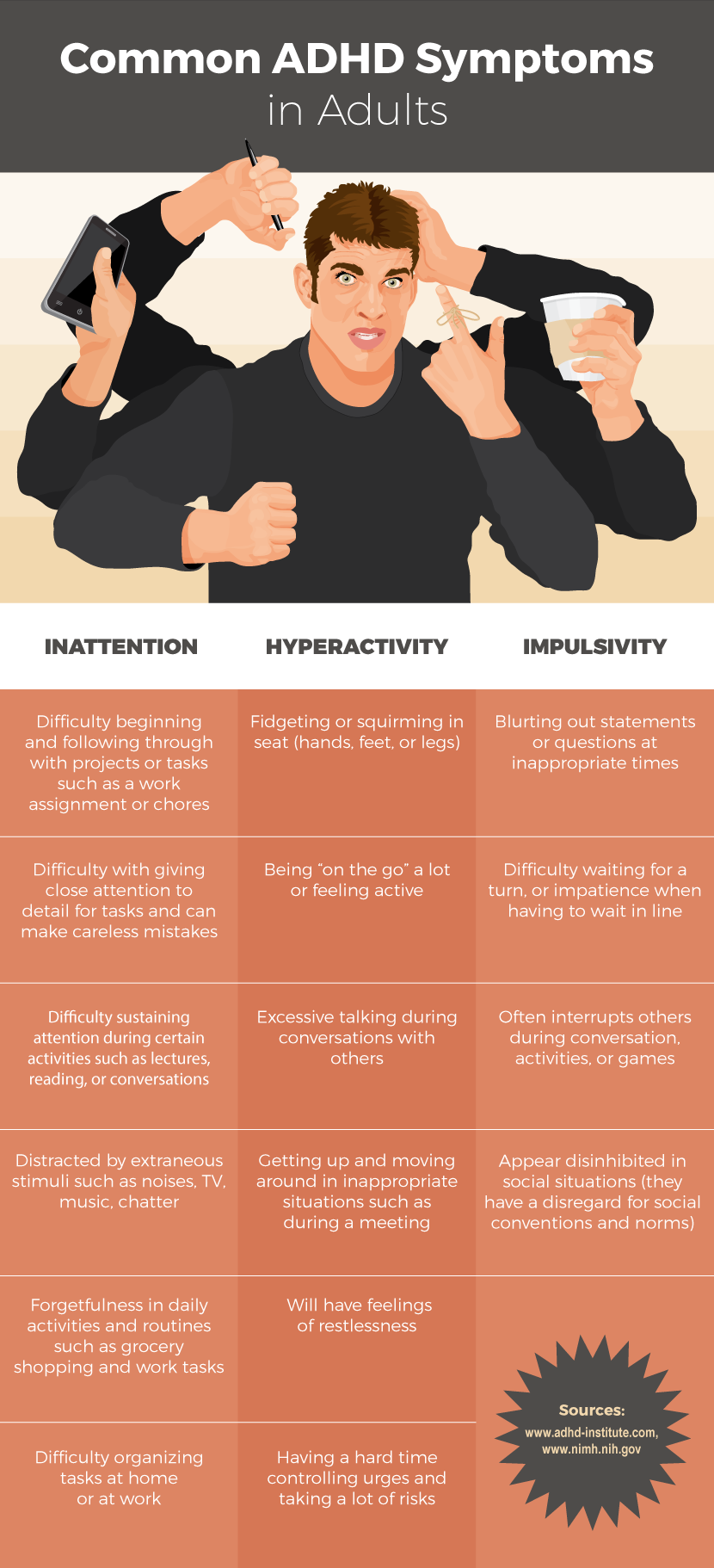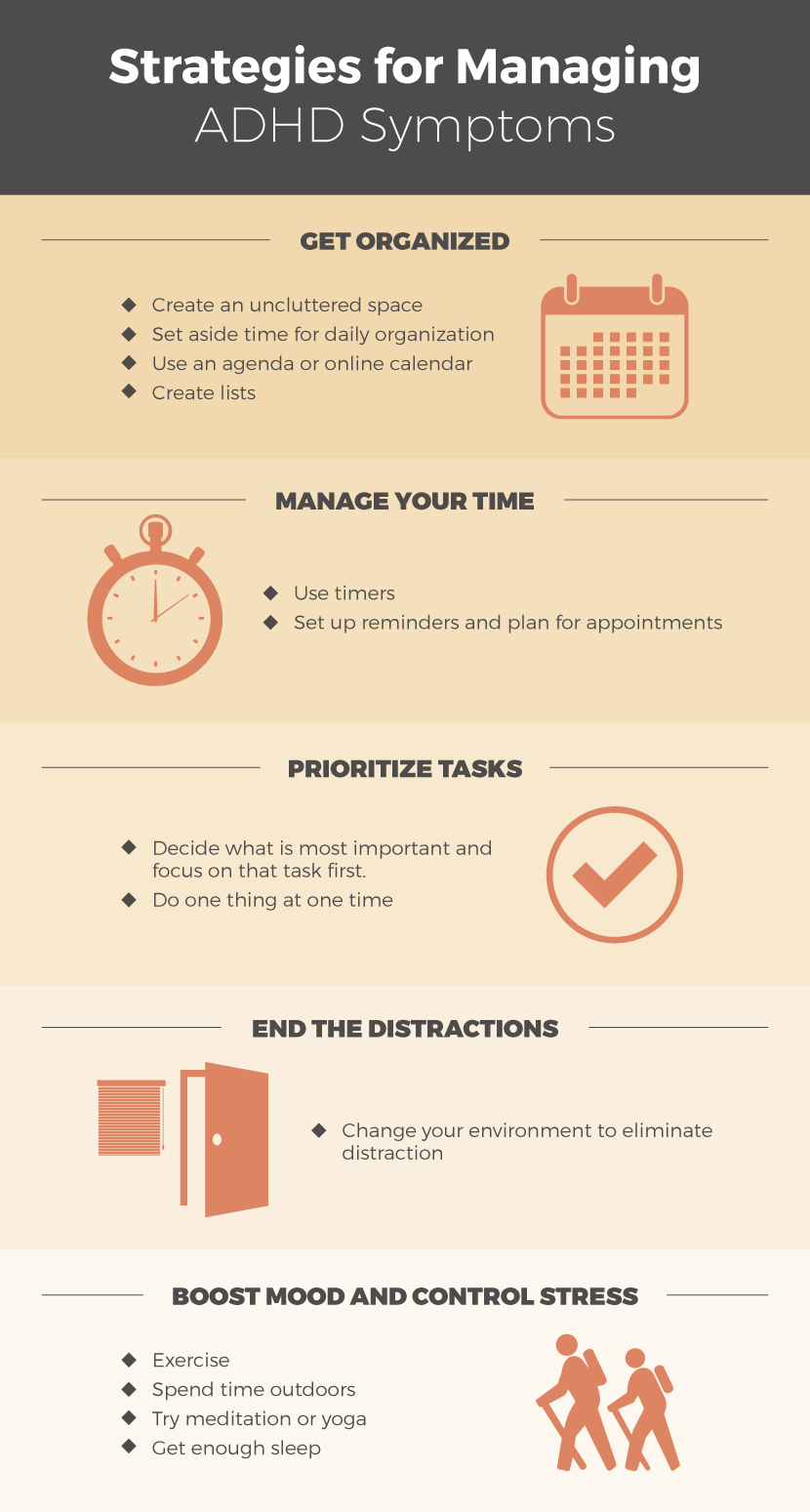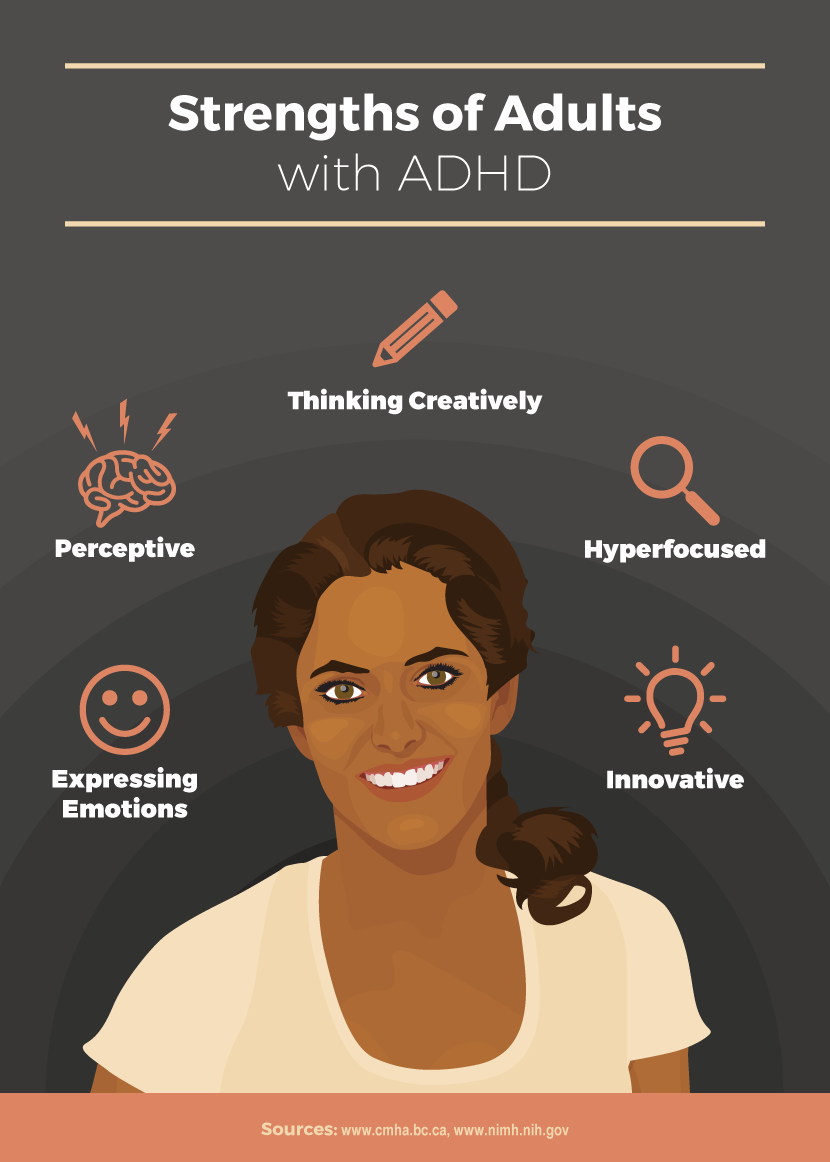Adult ADHD: It's Not Just a Childhood Disorder
Attention-deficit/hyperactivity disorder (ADHD) is a mental illness that is characterized by difficulties focusing and
controlling impulsive behaviours. ADHD is usually diagnosed in young children, but if undiagnosed and unmanaged, can lead to
continued problems into adulthood. Do you find it difficult to pay attention and focus on tasks? Are you feeling restless
throughout your day, like you need to be constantly moving? Do you interrupt others and act impulsively? If these concerns are
affecting your daily life and are ongoing, it could be a sign of adult ADHD.
Symptoms of Adult ADHD
Although many symptoms of ADHD begin in childhood and it is more often diagnosed among younger ages, ADHD symptoms can
continue into adolescence and adulthood. Many of us can feel restless, distracted, and inattentive at times. However, when these symptoms become a functional impairment and affect everyday life, there may be an underlying
issue. If you live with ADHD, you may have difficulty paying attention, staying on task, or getting organized. You may find setting
priorities to be difficult, or that you can't stop fidgeting throughout your day. Due to these symptoms, you could be
experiencing impairments in social, academic, or occupational functioning. Symptoms of ADHD are broken down into three
patterns of behavior: inattention, hyperactivity, and impulsivity.

Strategies for Managing ADHD Symptoms
If you live with adult ADHD, everyday routines such as paying the bills, grocery shopping, completing tasks at work,
and engaging in family and social demands may seem overwhelming. These demands and the inability to cope can be difficult
on your health and relationships. The good news is that ADHD symptoms can be alleviated through coping strategies and self-help
techniques that will support you in staying on task, becoming organized, and having a stronger sense of well-being.
Get Organized
- Create an uncluttered space free from distraction by using bins for cluttered items, setting up a paper
filing system, and going paperless with bills and bank statements.
- Set aside time for daily organization. Take 10 minutes per day to organize the to-do’s, clean your desk
, and organize your thoughts.
- Use an agenda or online calendar on your tablet or phone. This will support you in remembering
appointments and deadlines.
- Create lists to keep track of scheduled to-do’s such as grocery shopping or daily deadlines. These can be
online to-do lists or post-it notes.
Manage your Time
- Use timers to manually allocate time for certain tasks. You can set a timer so that you
are aware of how much time is passing. This will prevent any wasted time and help you stay on task.
- Set up reminders and plan for appointments by setting them for 10 minutes earlier than they are. This will
provide you with a cushion in case you forget something or are running late.
Prioritize Tasks
- Decide what is most important and focus on that task first. Order your other tasks after that.
- Do one thing, at one time. Break down large tasks or projects into smaller steps. Checking off completed
steps and
moving onto the next one will give you a sense of accomplishment.
End the Distractions
- Change your environment. Sit away from people who chat or listen to music, face your desk towards a wall rather than a window. Create a do-not disturb sign.
Boost Mood and Control Stress
- Exercise on a daily basis and stick with an achievable routine.
- Spend time outdoors by exercising outdoors or reading, or even napping in the sunshine.
- Try meditation or yoga. It will relax the mind and body, and can can also support attention
span and impulse control.
- Get enough sleep. Create a bedtime routine such as taking a bath, reading a book, or meditating. Stick with
a regular sleep-wake cycle.

Strengths of Adults with ADHD
ADHD is a disorder characterized by many negative symptoms that impact a person’s life. When we label symptoms as a
mental illness, a lot of negative stigma comes with that label and we view it as a limitation. As important as it is to
be aware of the weaknesses of ADHD in adults, it is also important to consider the strengths that adults with ADHD have.
An awareness of the positive strengths allows adults living with ADHD to harness their energy into productive and meaningful
work and relationships.
Thinking Creatively
Adults with ADHD tend to have high energy. This high energy can produce creative ideas and constructions.
Being Perceptive
A short attention span can mean that it is difficult to focus on a particular thing. However, it can also mean that an
adult with ADHD is perceptive to the world around them.
Innovation
We know that some adults with ADHD tend to get bored and distracted. On the other hand, we know that innovation comes
from not listening to the status quo and having the time to think about brilliant innovations and ideas.
Hyperfocus
Adults with ADHD can have difficulty focusing on tasks. The flip side of that is that some activities of high interest
and motivation can lead to an increase in focus and productivity.
Expressing Emotions
Some adults with ADHD have difficulty with impulsivity. This can lead to difficulty with controlling emotions.
Emotions tend to be strong and straightforward. This expression of emotions helps one to process them better and prepare
oneself for coping in the future.

ADHD affects many adults – both men and women. The symptoms of inattention, hyperactivity, and impulsivity can be a
major impairment in the functionality of everyday life. Although ADHD can have many negative symptoms, there are ways to
cope with these, such as: getting organized, managing time, setting priorities, ending distractions at home and work, and
boosting your mood and well-being. Remember to not let the drawbacks overwhelm you. Identify your strengths and practice
coping strategies so you can thrive in any setting.
https://www.cmha.bc.ca/documents/attention-deficithyperactivity-disorder-in-adults-2/
http://images.pearsonclinical.com/images/assets/basc-3/basc3resources/DSM5_DiagnosticCriteria_ADHD.pdf
https://www.nimh.nih.gov/health/publications/attention-deficit-hyperactivity-disorder-adhd-the-basics/index.shtml
Embed the article on your site

